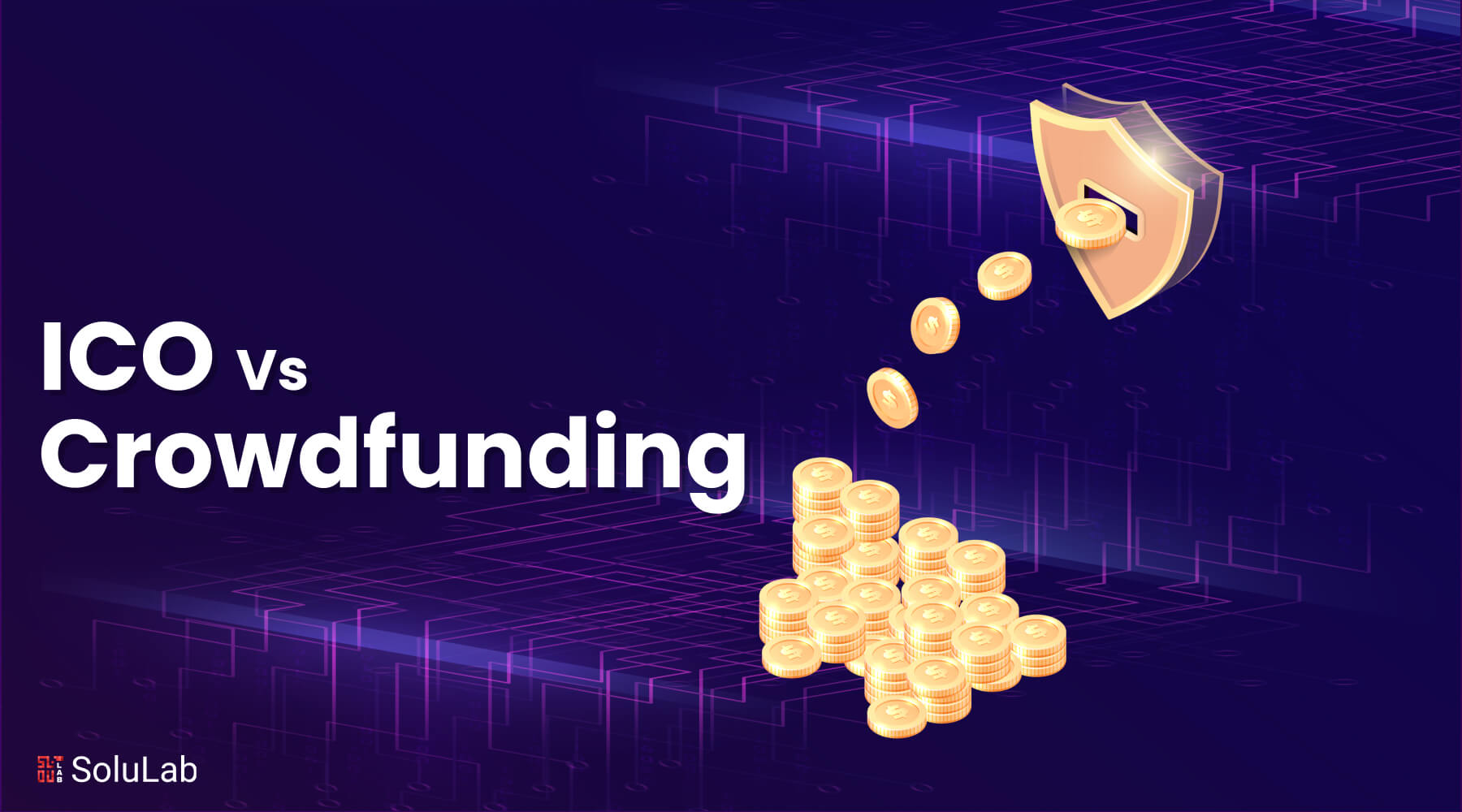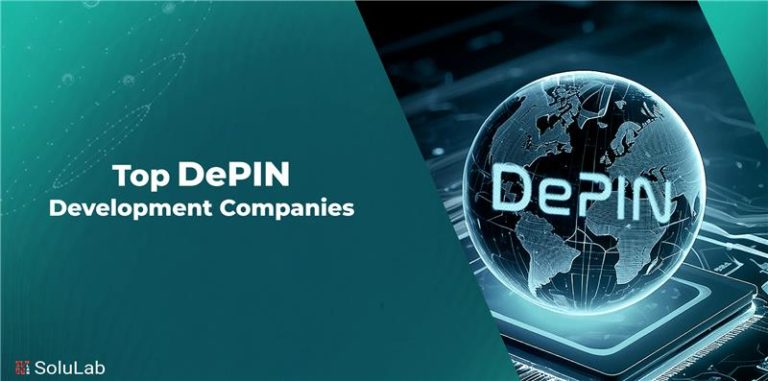
We frequently hear about venture capital & sizable seed funding rounds for new businesses. Accredited investors may invest huge amounts of money in a solid project. Those early “mega-backers” typically get a share of the company’s ownership in return. But what if a business lacks the contacts needed to raise millions through respectable investors? Consider an alternative scenario in which the startup is unwilling to give up stock. In similar circumstances, startups might approach regular people directly and ask them to support the idea. Crowdfunding has traditionally been used for this, with backers receiving rewards once the platform or product is made available. However, businesses have recently started to issue digital tokens that promise utility on upcoming services.
In this article, we’ll dive into the details of ICO fundraising vs crowdfunding to tease apart the differences between the two. They’re very similar in structure, but the differences in implementation lead to very different outcomes for startups and investors alike.
ICO – Initial Coin Offering
An initial coin offering, or ICO, is a token distribution event, and tokens are often stored on a blockchain. Average people can buy tokens during an ICO by exchanging other, more established cryptocurrencies like Bitcoin and Ethereum for the tokens.
ICOs can have a variety of structures, but they often involve a startup declaring an idea and stating a deadline for funding it. The startup will release supporting data about the issue, market economics, & potential use of its solution before the ICO.
Waiting until the designated day for the ICO is what someone will do if they want to support the firm. They will then offer to trade a certain amount of tokens from the token generation event for digital currency (such as ETH or BTC). The startup will often specify the minimum amount of capital needed to begin the project. All funders will receive a refund for their donations if the minimum is not reached. There is typically a cap on the number of tokens that the company will sell on a first-come, first-served basis if the project raises more money than anticipated.
The corporation keeps the money given to it by its backers and uses it to support the creation of new items. Typically, technology businesses, particularly blockchain startups, are the source of ICOs. In the future, the company’s software platform will value the tokens it sells. Investment in ICOs as well as the price of a token after issuance are both influenced by the anticipated future value of the good or service.
Crowdfunding
ICOs and crowdfunding are comparable. A startup makes an idea as well as a deadline for funding that idea public. The business will publish documentation outlining the concept and the market demand for such a solution prior to the crowdfunding campaign. The firm will start accepting donations from backers once the crowdsourcing campaign starts. If a financing goal is not reached, the money is returned to the backers. If the startup earns more than the cutoff, it keeps the money and can utilize it to create the promised product.
The incentives are the primary structural distinction between crowdfunding and ICOs. Tokens are given out to participants in an ICO. On the other hand, backers of crowdfunding campaigns receive an alternative incentive. It could be a tangible item or something as straightforward as a thank-you card. The crowdfunding campaign’s incentives are totally up to the firm to choose. This kind of crowdfunding is typical.
Read more: ICO Vs IPO: What’s the Difference?
Additionally, there are private crowdfunding efforts that grant retail investors a share of the company. The term “equity crowdfunding” applies to these. Equity crowdfunding is relatively uncommon because of how similar it is to initial public offers (IPOs) of stock certificates. Even though investors may only make modest contributions of up to $10, they demand a comprehensive examination of the rules governing the issuance of securities. Additionally, compared to an IPO, where minimum buy orders are often for $2,000, they issue significantly more and smaller tranches of stocks. We will only be focusing on traditional crowdfunding in this article because these types of campaigns are so uncommon and distinct from traditional crowdsourcing.
The difference between an ICO and Crowdfunding
-
Accessibility
The main distinction between the two of them is this. ICO projects have a larger scope than crowdfunding projects, which are limited to a certain nation or region. Anyone from anywhere in the world can take part in a coin offering.
-
Type of the Product
Products sold through crowdfunding might be anything from technology to software to hardware to clothing and even cuisine. ICOs center on blockchain technology and lean more toward the technical end of things. eSports gaming’s Unicorn Gold is one example of an ICO, as are Bancor, BABB, and Centra in the banking industry, among many more.
-
Return On Investment
Early access to a functioning platform or an already-released product is provided by crowdfunding. Additionally, joining and contributing increases the likelihood of receiving discount coupons. Investors who take part in an ICO, however, will be focused on making money.
-
Risk Involved
Both carry a certain amount of danger. However, an ICO investor would experience losses that are different from those of a participant in a crowdfunding campaign because they do not expect a return on their money but rather exclusive access to a technology or product.
Some advantages of ICO:
1. Liquidity
Lack of liquidity is a common barrier for individuals looking for new investment opportunities. Capital is often unreachable for years in many possibilities. With ICOs, investors have great liquidity as well as the secondary market, which implies that true pricing is based on the project’s current value.
2. Decentralization
Everyone may be able to participate in ICOs, especially if they take bitcoins. For the majority of ICOs, the contributors’ ability to transfer money in time to make a purchase is the only prerequisite.
3. Openness
ICOs not only let anyone invest; donors can also invest whenever they choose. Contrary to conventional models of startup finance, this makes it practically impossible to become an early investor unless you have a personal relationship with one of the founders. Early investing pays off because contributors often pay less because they don’t have to pay premiums. Contributors only need to keep an eye out for new ICOs and be prepared to buy tokens as soon as they go on sale to become early investors.
Some advantages of Crowdfunding
-
Access to Capital
At an early stage, an entrepreneur may think that outside of their own network, they can only raise capital from accredited investors, venture capitalists, and banks. This isn’t true. Crowdfunding is a great alternative way to fund a venture, and it can be done without giving up equity or accumulating debt. Rewards-based crowdfunding platforms allow entrepreneurs to raise funds from the community in exchange for simply giving their tangible products or other relative gifts.
-
It hedges risk
A business’s inception is an extremely difficult and hazardous process. There will always be expenses that are impossible to predict, difficulties with market validation, as well as other people who want a piece of your enterprise to help it take off, in addition to the usual hurdles of securing adequate money. An effective way to mitigate these risks is to launch a crowdfunding campaign. The current state of crowdfunding enables an entrepreneur to test the market without releasing equity before investing everything into bringing a product proposal to market.
-
It serves as a marketing tool
As it is a free and simple means to reach multiple channels, an active crowdfunding campaign is indeed a wonderful way to introduce a venture’s general objective and vision to the market. It is simple to drive relevant traffic to company websites or social media sites thanks to the social media mechanisms that are included in many crowdfunding platforms. This usually enables businesses to get thousands of organic visits from distinct users and possible investors. These people are crucial for viral marketing since they can share and tell their contacts about the campaign.
Conclusion
Because the projects participating in ICOs include technical & logical components related to their systems, the majority of Bitcoin professionals are very interested in them. Additionally, ICO projects such as Ethereum and Decent are poised for success. Additionally, some technology firms are changing to become ICO Consulting. These ICO development firms are providing ICO Launch Services in their most upbeat manner and assisting organizations in comprehending how to construct an ICO.




